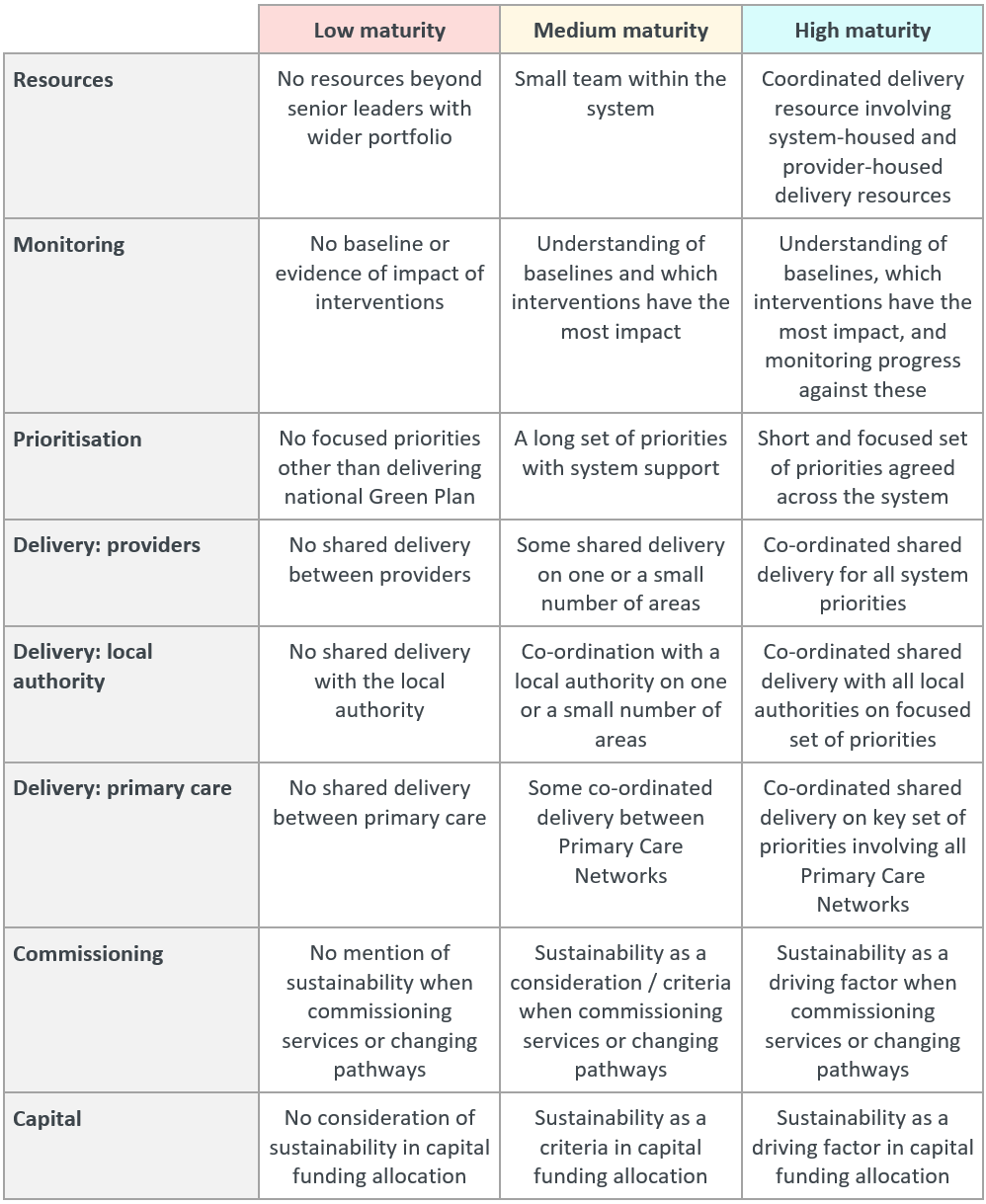04/04/2024
Strategy & Finance, News, Insights
What does a good net zero programme look like for Integrated Care Systems?
The NHS has committed to reaching net zero in 2045 and Integrated Care Systems (ICSs) will play a key role in meeting this target. Discover what good looks like for an ICS net zero programme.
With 2023 recently confirmed as the hottest year on record [1], the transition to net zero is vital for keeping people healthy in the coming decades; that’s why the NHS, as a significant contributor to the UK’s carbon footprint, is committed to reaching net zero by 2045 [2].

Both Integrated Care Systems and Integrated Care Boards have a key role to play in supporting and coordinating delivery of the net zero agenda across the NHS. Integrated Care Systems (ICSs) are local partnerships that bring health and care organisations together to deliver services in a more joined-up way. Meanwhile, Integrated Care Boards (ICBs) are NHS organisations formed in 2022 to coordinate this joined-up working and plan health services in their local area.
While ICBs hold less direct influence over emissions than NHS Trusts which directly provide care for patients, their impact at a local system level is substantial. They play a crucial role in:
- Embedding the Net Zero agenda in system-wide priorities and plans, including allocating capital funding and commissioning
- Driving sustainability across the whole health economy through collaboration with primary care, social care, local authorities and wider non-NHS partners
- Influencing and shaping the priorities of Trusts in a coordinated way
Through the Health and Care Act 2022, all health and care systems have a statutory duty to support meeting the NHS’s net zero targets through localised Green Plans and Board level leadership in ICBs and Trusts.
The PSC has recently spoken to 14 system leaders across the country about their next zero ambitions. We found that progress towards net zero commitments is mixed. Despite exciting progress in some areas, many still face familiar challenges:
- Identifying key priorities: a large number of national priorities makes it hard to focus limited resources on the big wins, whilst lack of data makes it difficult to understand what has the most impact.
- Measuring progress: many ICBs do not measure the carbon impact of different actions and their progress towards their targets.
- Lack of delivery resource: many ICBs have very limited or no delivery resource and struggle to access additional resource across the wider system; where this resource exists, much of it is restricted to estates teams.
- Lack of capital investment: there is insufficient capital investment to deliver on the big wins in estates, and the short-term horizons of national capital funding programmes make it hard to plan a long-term trajectory to net zero. However, there are some funding pots available to NHS organisations, such as the Salix public sector decarbonisation fund
- What good looks like: there is no clear, widespread articulation of what good looks like for a mature net zero programme.
Based on examples of good practice from Integrated Care Systems across the country, we have developed a 6-dimensional maturity matrix for a system net zero programme to support understanding of what good looks like for ICSs. Each Integrated Care Board can use the matrix to assess the maturity of their net zero programme and identify next steps: from the easy wins, to the bigger pieces which will require more time and investment.

[1] 2023 was the world’s warmest year on record, by far
[2] Greener NHS National Ambition
The PSC is a management consultancy dedicated to making public services brilliant. We work with leaders in health and care across the UK on their most difficult challenges, including delivering on the net zero agenda. If you would like to discuss how this matrix could support your Integrated Care System to reach net zero, please get in touch with us at hello@thepsc.co.uk.
Latest News & Insights.

Synthetic Research is Happening – Here’s What’s Out There
AI-powered synthetic research is moving fast. Here’s how public service…

2025 Wrapped: What This Year Tells Us About the Next 20 for Public Services
From healthcare reform to AI acceleration, in our end of year podcast, The PSC…
